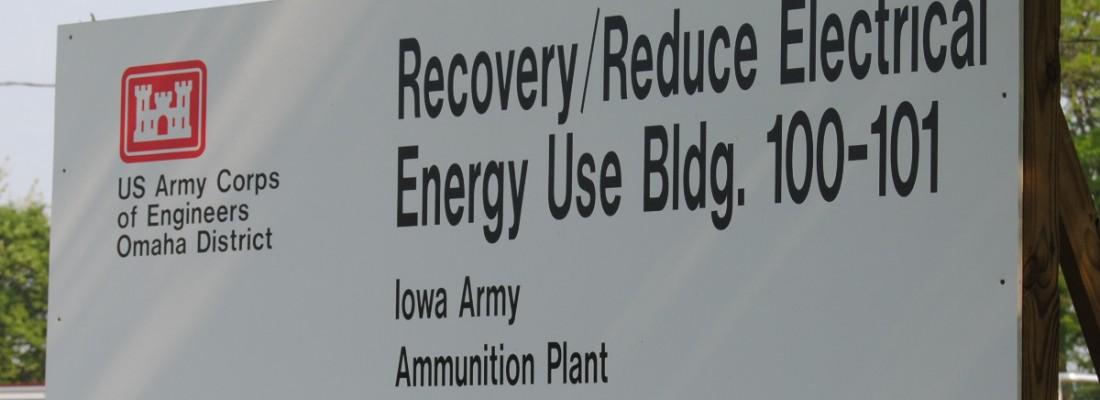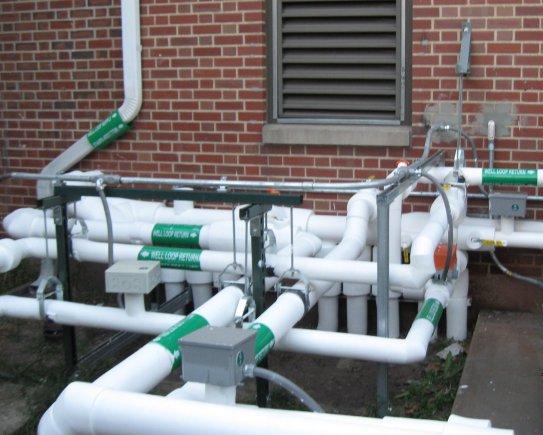
A sign at the Iowa Army Ammunition Plant announces the construction of new geothermal and photovoltaic systems at its administration building. (Credit: U.S Army photo)
Iowa Army Ammunition Plant, part of Joint Munitions Command that produces large caliber munitions for U.S. Joint Forces, is undertaking a two-phase installation of geothermal and photovoltaic systems at its administration building to help meet the U.S. Army mission to reduce energy demand by increasing the efficiency of traditional energy sources or utilizing new ones.
“Through this project, IAAAP is helping the Army gain ground in the Net Zero Energy campaign,” said Dennis R. Lacy II, energy execution project manager with the U.S. Army Corps of Engineers, who provided specialized support on the project. A Net Zero Energy Installation is an installation that produces as much energy on site as it uses, over the course of a year.

Pipes coming from the underground geothermal system lead to the heating and cooling systems inside the administration building at Iowa Army Ammunition Plant. (Credit: U.S Army photo)
The first phase of the project is complete. Already installed, the geothermal system incorporates a vertical closed, ground loop system. Vertical loops are used where the soil is too shallow for trenching, and minimize the disturbance to existing landscaping.
In a vertical system, holes, approximately four inches in diameter, are drilled about 20 feet apart and 100 to 400 feet deep. Two pipes are inserted into these holes and are connected at the bottom with a U-bend to form a loop. The vertical loops are connected with horizontal pipe, or manifold, placed in trenches and connected to the heat pump in the building. IAAAP’s vertical system required 117 holes, or wells, which initially were intended to be drilled to 185 feet deep, but ended up at 182 feet deep due to a hard layer of earth at that depth. Currently, the geothermal system is being used to cool the admin building.
The photovoltaic system is now creating electricity for the building and future projects may expand further use of the technology. “The second phase of the project will be complete within the next year and a half,” said Linda Wobbe, environmental protection specialist with IAAAP. “The current steam-heat system will be removed to make way for geothermal heating of the building.”
IAAAP received funding for this project through the American Recovery Act’s stimulus program. Congress awarded $1.46 million to convert the administration building’s cooling system to a more energy-efficient system. IAAAP used regional and local companies to design and install these new, energy-efficient systems and considered the project a win-win for the installation, the local economy and the Army’s energy accountability mission.

